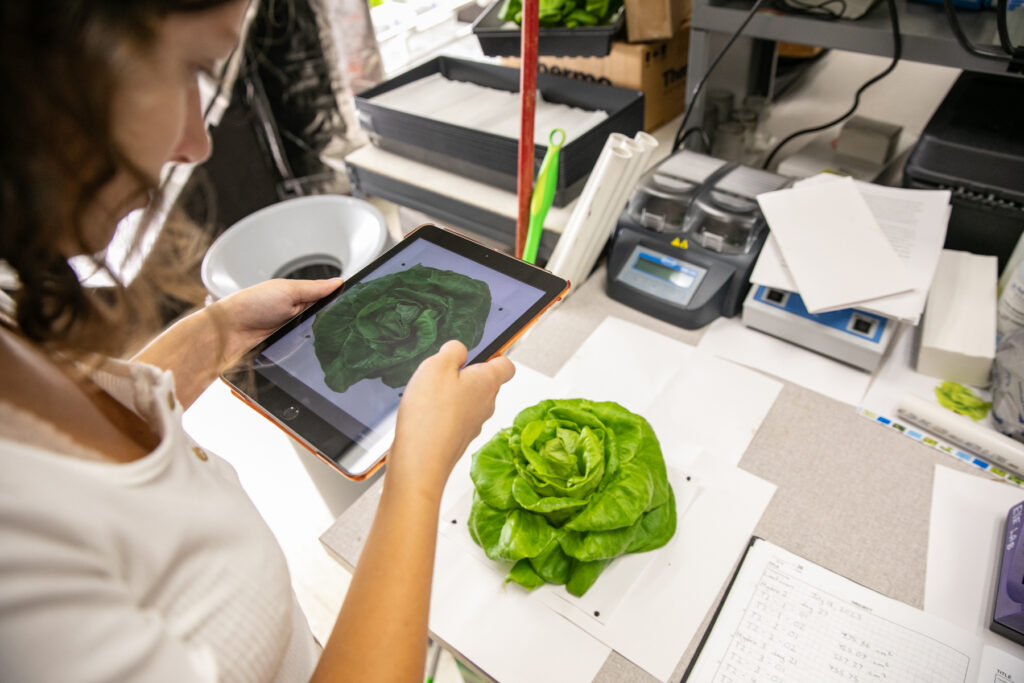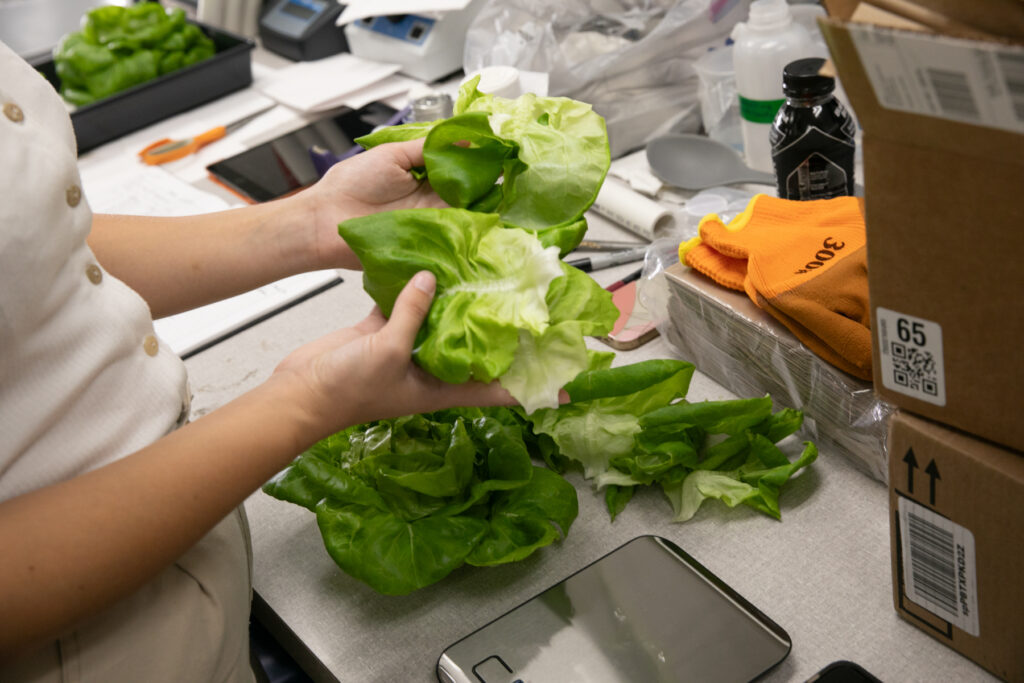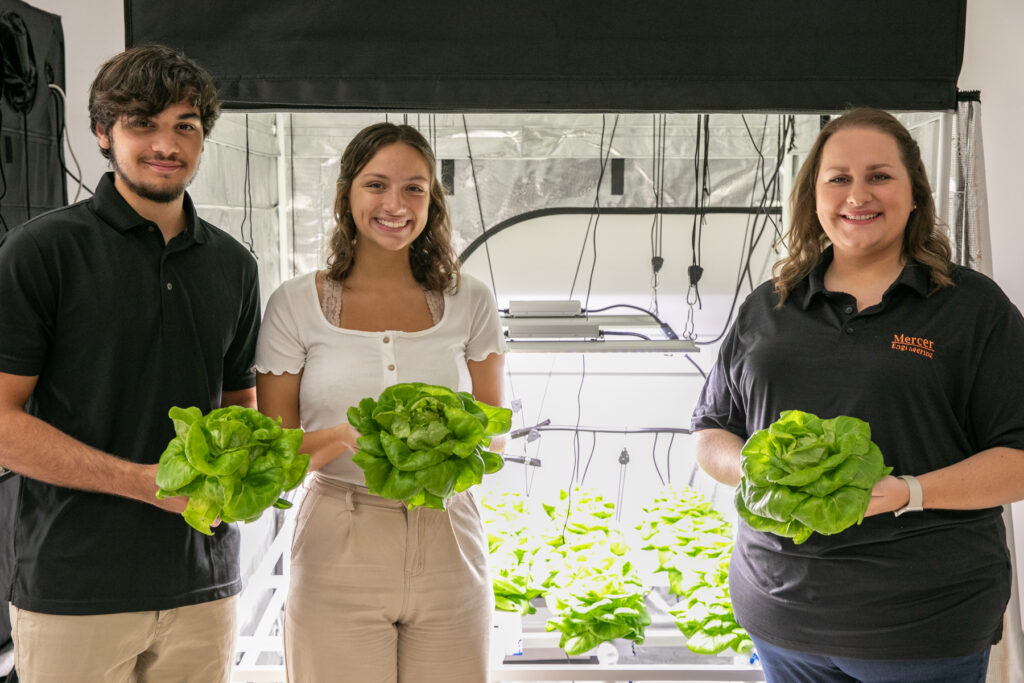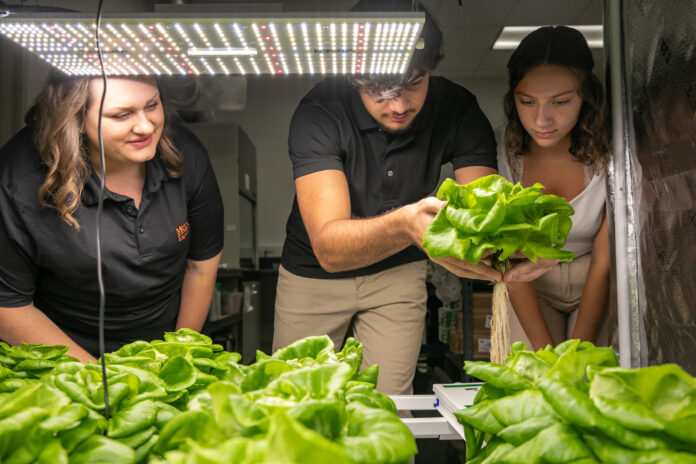
Research by two Mercer University undergraduate engineering students resulted in 48 heads of billowing lettuce.
Students grew the Rex butterhead lettuce from seeds in hydroponic growth tents, which they built in a lab in the Engineering Building. Instead of soil, they grew the lettuce using tap water infused with nutrients.
Their research laid the groundwork for future study of whether such crops can be grown using other types of water, such as wastewater or grey water. Grey water is used household water that does not include sewage. This could offer a more sustainable way to grow crops, said Dr. Sarah Bauer, assistant professor of environmental and civil engineering, who led the project.
“Hydroponics growth systems do not need the same land footprint as traditional agriculture techniques,” she said. “Crops are grown in nutrient-fortified water instead of in soil. So, we do not need to use large areas of land to grow and harvest these crops. Instead, such crops can be grown indoors, in only water, and can be done so using a smaller overall footprint.
“Growing crops in the controlled environment of a hydroponics growth systems allows for higher, predictable yields year-round, which has the potential to help mitigate global food insecurity.”
The engineering students were just two of 31 undergraduate students who participated this summer in the Mercer Undergraduate Research Scholar Training Initiative, called MURS for short. Across three Mercer campuses, MURS students worked with 21 faculty members on research that also included mapping the universe and investigating how various drugs affect cell growth in kidney cancer, as well as other engineering- and health-related topics.
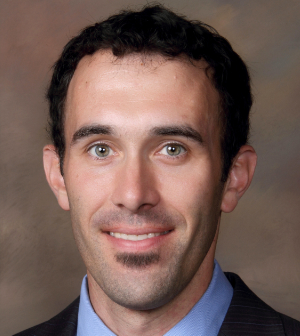
“Our goal in the program is to get undergraduate students engaged in research during the summer,” said Dr. Kevin Bucholtz, professor of chemistry and director of undergraduate research. “These students have the opportunity to engage in their education at a deeper level and gain insight into what graduate school research looks like. They are really competitive for scholarships, fellowships and awards.”
The University provides MURS students — who work 40 hours a week, typically for 10 weeks — with an educational training stipend and housing, as well as the opportunity to participate in social activities with other program participants.
Since MURS’ inception in 2008 — it originally was called Mercer Undergraduate Biomedical Scholars and was renamed in 2021 — 172 students have participated in the program. Of the 103 MURS students who have graduated, 78% went on to a research-based position, according to program data.
MURS students also have received prestigious awards, such as the Barry M. Goldwater Scholarship; Benjamin A. Gilman International Scholarship; and Science, Mathematics and Research for Transformation (SMART) Scholarship.
MURS student named Goldwater Scholar
This was the second summer that rising senior Dakota Ellis participated in MURS. Ellis, a biochemistry and molecular biology major, was named a Goldwater Scholar earlier this year. Her first MURS experience was the summer after her freshman year, when she worked in the lab of Dr. Emilianne Limbrick, associate professor of chemistry. There, she researched the biosynthesis of lanthipeptides derived from marine bacteria, with the hopes of developing new compounds with antibiotic activity.
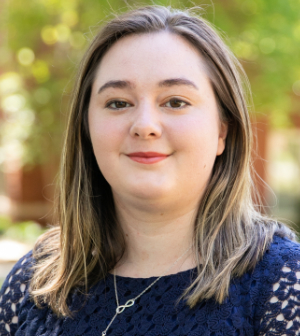
MURS students typically are funded by the Office of the Provost, but Ellis’ work in Dr. Limbrick’s lab was made possible by a grant from the Jean Dreyfus Lectureship for Undergraduate Institutions.
The experience “made me realize how much I love the uncertainty of things and pursuing knowledge,” Ellis said. “There are just so many things we don’t know, and research oftentimes doesn’t work out or you hit a bump, and you stay stagnant for a while.”
She said she enjoys being able to overcome those roadblocks and find solutions.
“I like the idea that one day I’ll be in graduate school — and even past graduate school — answering my own questions and being able to overcome the challenges that come with that while also advancing science,” she said.
After her sophomore year, Ellis participated in a summer research program at Georgia Tech. This summer at Mercer, she worked in the lab of Dr. Nader Moniri, professor of pharmaceutical sciences and associate dean of research in the College of Pharmacy. There, Ellis studied how kidney cancer cells respond to different drugs.
“She’s really passionate about what she’s doing. She’s a hard worker, and she’s legitimately vested in her project, which is really nice to see,” Dr. Moniri said.
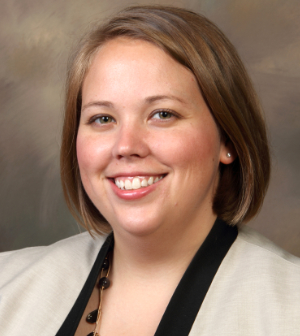
Dr. Moniri has participated in MURS since it started in 2008. His first MURS participant was actually Dr. Limbrick, who was a Mercer student at the time.
“It was my first time doing research outside of the academic year, so it gave me experience of what it would be like full time. It kind of helped me start orienting myself toward graduate schools,” Dr. Limbrick said. “Up until that point, I thought I wanted to go to medical school, but that experience kind of pushed me more toward grad school, and after more experiences doing research, I decided I wanted to pursue a Ph.D.”
After MURS, Dr. Limbrick went on to participate in a summer research experience at the Mayo Clinic in Jacksonville, Florida. She graduated from Mercer in 2010, earned her Ph.D. from Vanderbilt University, joined the College of Liberal Arts and Sciences faculty in 2016, and became a mentor to Ellis.
“I think it’s really neat that she gets to have (the same) experience that started it all for me,” Dr. Limbrick said.
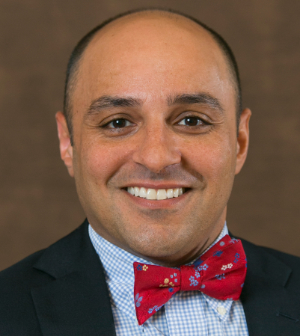
Dr. Moniri said he recently showed Ellis a picture in his lab of Dr. Limbrick during her MURS stint in 2008.
“Even if you have just a small part in exposing (students) to research, it’s really rewarding to see them want to continue a research career,” he said.
MURS students receive many benefits from the program, Dr. Moniri said. Of course, there are the research skills and techniques they learn, but there are other benefits as well.
“The intangible benefits I think are working as part of a team, working as part of a larger group, and working with others on timing and facilities,” he said. “If there are six people in a lab, you have to work with others to manage your time, space and the resources, so not everyone’s in the same place at the same time.
“There are a lot of person-to-person interactions that I think are really beneficial for the students in a lab setting to understand lab workflows and how things in a lab run.”
Students learn to code, work with machine learning in astrophysics
MURS students in the lab of Dr. Frank McNally, assistant professor of physics, researched particle astrophysics to make maps of the universe using particles instead of light.
“Every new way that we can look at the universe tells us new information,” he said.
This summer, three of Dr. McNally’s five MURS students were funded by a National Science Foundation grant as part of the International IceCube Collaboration, which includes more than 350 people from 58 institutions in 14 countries.
At the heart of the collaboration is the IceCube Neutrino Observatory, a particle detector located at the South Pole. MURS students worked on analyzing data collected from IceCube.
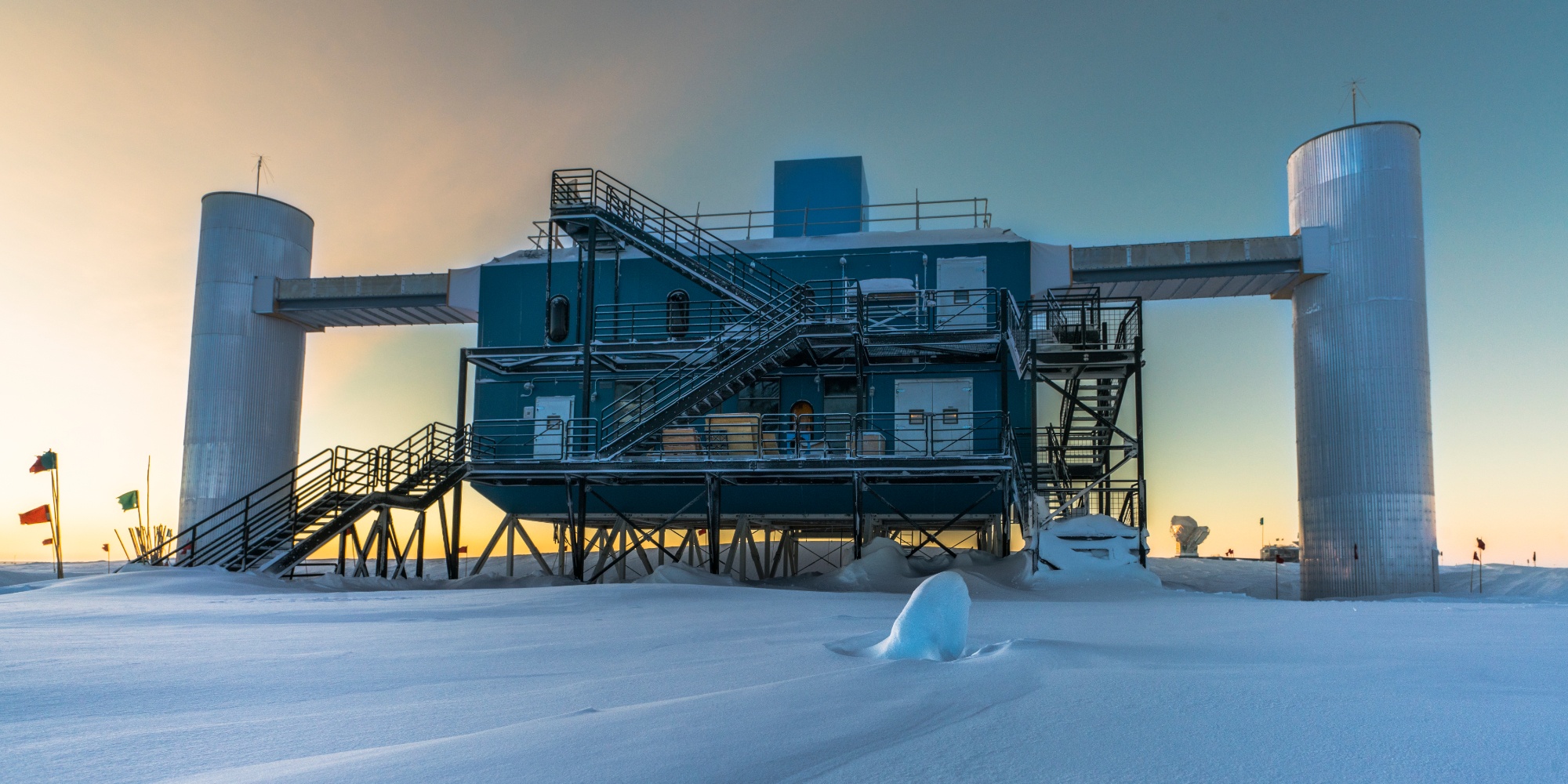
“You have more data than you could ever imagine, and so how do we parse the hundreds of billions of events in order to make something meaningful out of what we observe? What this looks like practically for students is they are coding in Python (a programming language) and developing tech skills for handling big data,” Dr. McNally said.
Students worked on two projects: one finding and classifying errors in the data and the other using machine learning techniques to see if a computer can reconstruct cosmic ray showers better than a human.
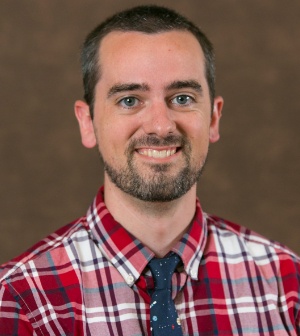
“These are incredibly useful and applicable skills. The ability to code is becoming more of a demand no matter what your field is,” Dr. McNally said. And then, “coming out of undergrad saying that you have experience working with machine learning techniques is something different. That is an employable, very useful skill.”
Charbel Youhanna, a rising sophomore majoring in biomedical engineering, said he joined Dr. McNally’s lab because of his interest in physics.
“We’ve learned a lot since the beginning,” he said. “I came in with very minimal coding knowledge, and now I can confidently say that I’m become more comfortable with coding, and I’ve learned a lot about the astrophysical world.”
Grant Clark, a sophomore majoring in electrical engineering, said he appreciates that MURS affords undergraduate students the opportunity to participate in research early in their careers.
“At a bigger school with the experience level that I have right now, I probably would not have gotten this opportunity,” he said. “I was able to participate in this without much experience and get trained at the beginning.”
Dr. McNally said he benefits as a faculty member as well.
“For me, this is a total slam dunk,” he said. “MURS has given me the opportunity to pursue these research topics that I might not have been able to do otherwise. It’s provided me with extra students. It’s provided me with an infrastructure where I can even bring in my own funding.
“And it’s given these students a community beyond the two to three people in their lab. So that for me is a lot of good.”
Engineering students seek sustainable farming solutions
Dr. Bauer, the assistant professor leading the hydroponics research, joined the School of Engineering faculty in fall 2022. As soon as she learned about MURS, she signed up to host students this summer.
“I thought the MURS program would be a great opportunity to jump-start this new research project,” she said. In the future, “our research group will investigate growing crops hydroponically in both a feasible and sustainable way. How much energy needs to be put into the system? What resources does the system consume? How can we make the system more sustainable in terms of the water and nutrient footprints?”
“As engineers, we need to take a look at the system as a whole to determine whether it is net favorable or not in terms of energy, water and nutrient usage when compared to crop yield.”
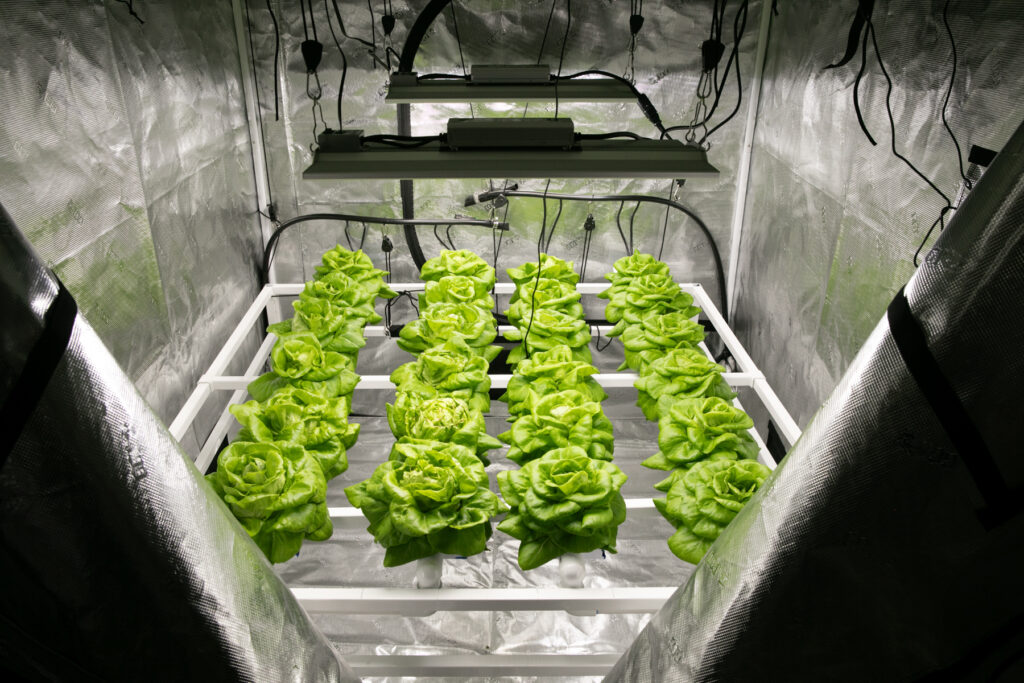
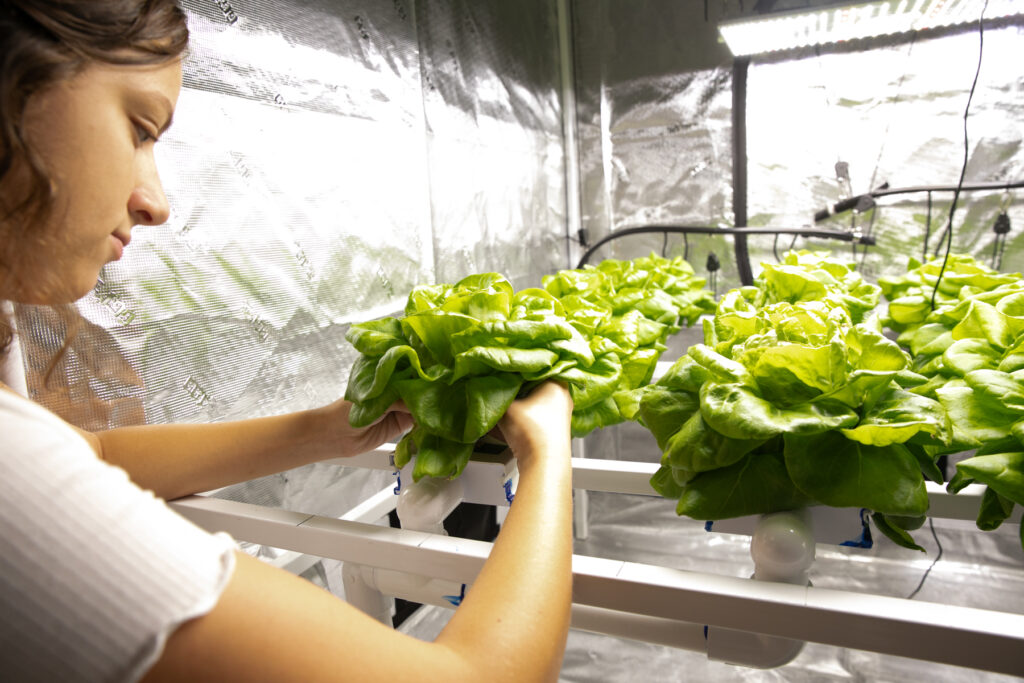
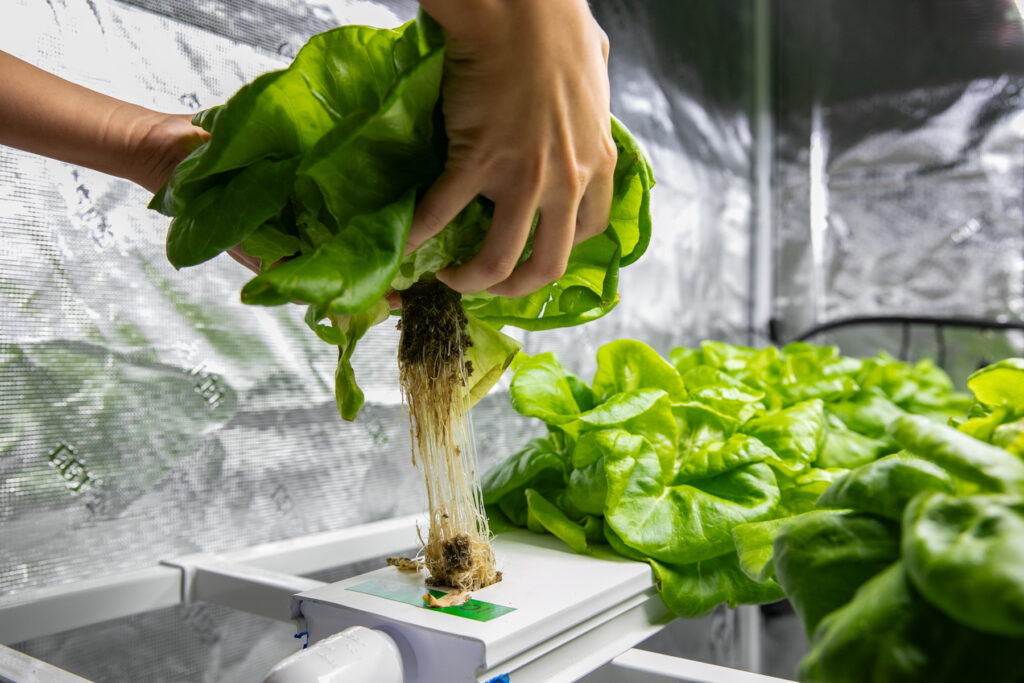
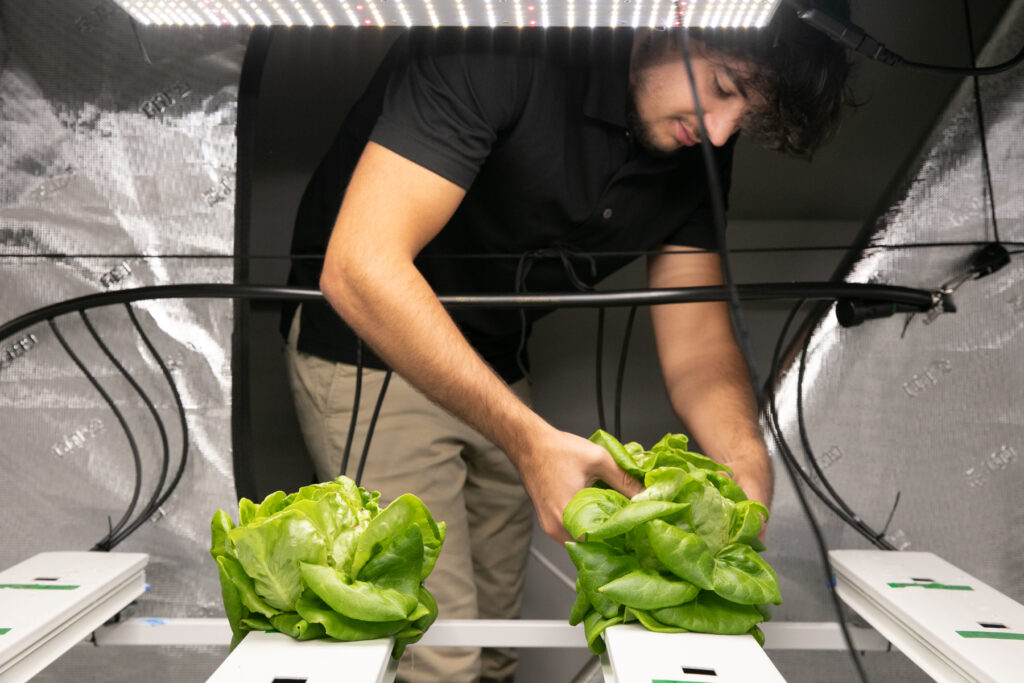
Both of Dr. Bauer’s MURS students — Xzavier Longacre and Anna Ruth Madera — are rising sophomores, and they plan to continue working with her as her research develops. Dr. Bauer has plans to expand this research project with her collaborator Dr. Ankit Singh at Florida Gulf Coast University.
Longacre, an environmental engineering major, said he didn’t know anything about hydroponics when he started working in the lab.
“It was a big learning curve to figure out everything I needed to know about hydroponics, and there are tons of different ways to set up a hydroponics system,” he said. “Then, we also had to build these growth tents to have a sterile environment to keep track of the temperature and humidity that the lettuce would be involved with.
“Walking into a barren room to now walking into a lab that has two tents with 24 heads of lettuce per a tent is a big change.”
Every day this summer, Longacre and Madera checked the lettuce for stress or growth problems. Every three days they took pictures of the lettuce using a mobile app that allowed them to measure the surface area and growth. Every six days, they replaced the nutrient solution.
They also monitored the temperature, humidity, light and carbon dioxide levels in the growth tents.
“I knew before I even went to college that research was something that I wanted to be involved in, and I feel so blessed to be able to get involved in research right after freshman year,” said Madera, a biomedical engineering major on the pre-med track. “It’s such a huge deal to get research experience in college.”
